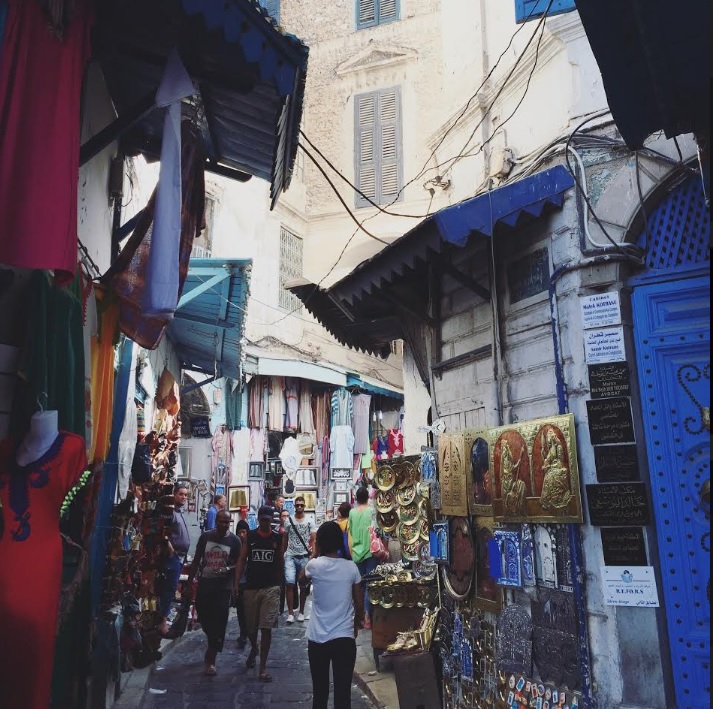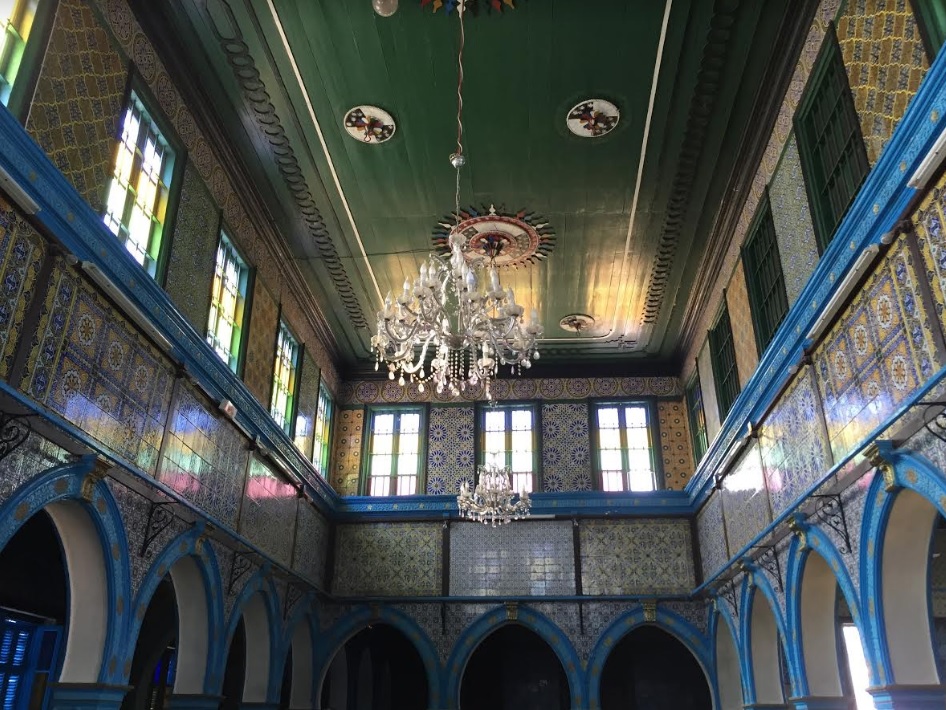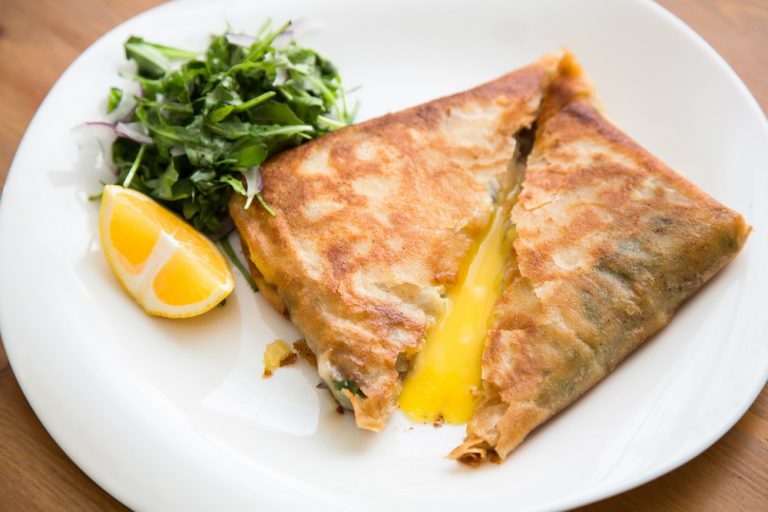Travelling to Tunisia was a childhood dream of mine. The land and people have always intrigued me, and after years of hopeful wishing – the dream had finally come true. Tunis, after all, did give birth to the Arab Spring. I had set a personal goal to learn the Tunisian dialect; a dialect like music to my ears. I soon embarked on this journey alone and was pleasantly surprised by the warmth and kindness of the Tunisian people. Regardless of the fact that this was a low budged trip, I had been given the opportunity to experience the local authentic life of Tunisia by traveling through its various cities and towns.
I began my trip in Tunis and from there, visited Carthage in order to view the ancient ruins and picturesque Sidi Bouseid. Sousse was a beautiful city enveloped by the beach, and I resided in a comfortable and modest hotel in the old city of Sousse which was at a walking distance from the sea. This allowed me, for a two-day stay, to enjoy Kasbah’s downtown where I had the opportunity to try plenty of delicious Tunisian street food which is actually a blend of several Mediterranean spices and culinary traditions.
Interestingly enough, one can find much more Algerians in Sousse than Tunisians during the summer. This is largely due to the fact that Algerians tend to spend their summer vacations at Tunisian Mediterranean cities. Finally, I went to the gripping Djerba Island in southern Tunisia. Traveling was both extremely cheap and convenient: from Tunis to Sidi Bousaid in Carthage there is a metro that costs a mere 0.25 cents. Sidi Bouseid is Tunisia’s Santorini. It is stunning with its white buildings and turquoise doors and windows. I traveled from Tunis to Sousse and from Sousse to Djerba by minibus that approximately cost four to five US dollars.
In this aspect Egypt is not very different, if your spending currency is in dollars, transportation and commuting using the metro or the mini-buses is considerably very cheap. Even the more expensive buses will cost you a minimum of 10$. In Tunisia, to commute from one place to another I used local mini buses [Louage]. More often than not, the music played on my six to seven-hour journey was Egyptian, old and new. It was of no issue to be a single woman traveling in these minibuses. It wasn’t recognized as rather exotic either since there was a significant number of women in the queue getting tickets to enter various Tunisian cities. Thus, men there – as far as my experience was concerned – did not approach or gesture to women in a way that could make them uncomfortable. On the contrary I found them to be rather protective and considerate. I would not do this in Egypt since I remember how uncomfortable my experience was while passing the Ramses station and enduring catcalling and harassment.
This is why, when traveling between cities in Egypt, trains seem like a better choice. Quite surprisingly, a number of Tunisians told me that I was the first Egyptian they had ever met. Everyone was always welcoming especially when they discovered that I was from Egypt. Most of them knew Egypt through cinema and music and this was enough of a reason for them to be attracted to it. Most of the Taxi drivers would automatically swap to the Egyptian accent when they heard where I was from. There was not a single Tunisian who did not tell me about the last Egyptian film they had seen or the old and new Egyptian music they loved. I also recall a very warm, and old hostel receptionist who never stopped talking about how beautiful his trip to was to Egypt 20 years ago. He longed to visit again and expressed envy that I was heading back to Cairo soon. However, I am sure if he was to ever visit Egypt again, he will not find what he found in it 20 years ago.

In Tunis, I stayed in a hostel in the old Medina, Kasbah. I had the luxury of walking through its old white and blue neighborhood and to Habib Bourguiba Avenue, famously known as Tunisia’s Champs Élysées. However, it was special to for an entirely different reason. As I walked through its exceptionally wide sidewalks, I couldn’t help but remember one thing, “Benali harab, benali Harab” (“Benali fled, Ben Ali fled”), one of the most striking videos of January 2011 after Ben Ali fled to Jeddah during the Tunisian uprising. Just like how someone would remember scenes of the Egyptian revolution, as they walked through Tahir Square realizing how life continues to circulate normally and vivaciously around it despite the crackdown on its ‘revolutionary’ aftertaste. On that note, one thing I noticed during my ten days stay is that I did not see one single picture of President El-Sebsi, although I had traveled around several places. Most Middle Eastern countries have a picture of the president plastered everywhere, but it is safe to say that one can travel to Tunisia for weeks, and still have no idea how the president even looks like. This certainly contrasts with how the streets look in Egypt, a visitor would see the president’s picture more than anything else.
Prior to my trip, I had several preconceived notions of Tunisia being an open-minded and highly educated environment; however, after having traveled around, my impression was most people belonged to the middle class, yet democratic values seemed to prevail. I pleased to realize how I was not once sexually harassed in Tunisia since, for an Egyptian woman, sexual harassment is an unavoidable part of daily life. Based on my experience, it is safe to say that in Tunisia, a woman’s status is far more respected than any other Arab country I have been to.
On another note, Djerba Island, also called “The Island of Dreams”, was very intriguing because of its diverse population. I have never come across a place in the Middle East where a Jewish and Muslim population live harmoniously. Djerba is home to the most stable and largest practicing community of Jews in Tunisia.

Credit: Farah
The most famous food on the Island is Ishak Breik – which is well worth a try! Breik, was by far my favorite in terms of traditional street food! It is a special pastry filled with eggs, cheese, sometimes Harrisa and tuna. Actually, tuna is in almost all Tunisian meals, even crepes! Tuna is of such great value there to the extent that a famous reaction to an expensive purchase is often responded with “Why? Is it made of tuna?”

All in all, this trip to Tunisia did not only make a childhood dream come true, it also satisfied the curious part of me that was keen to explore more of the Middle East and North Africa. Travelling to another Arab country is enriching, the cultures are very different yet in many ways similar. We share more than just a language. Learning different dialects, observing cultural norms and traditions as well as the minorities of the region, makes me value the richness and diversity. Travelling solo was liberating; we aren’t born free, yet, traveling to a country where no one knows me is how I define freedom. Even though I don’t pass as a westerner, I was often taken for a Tunisian, Algerian, Moroccan. It was good to know that I was free enough to not bring too much attention to myself, I was just a traveler passing through.







Comment (1)
[…] A Young Egyptian Woman’s Experience traveling Solo Through Tunisia […]